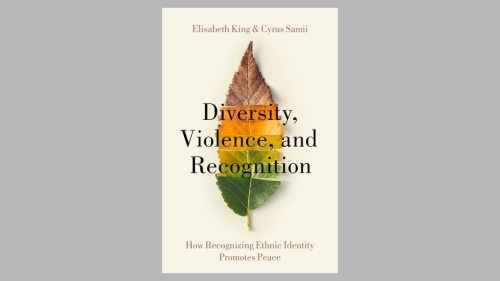
When considering strategies to address violent conflict, scholars and policymakers debate the wisdom of recognizing versus avoiding reference to ethnic identities in government institutions. In Diversity, Violence, and Recognition, Drs. Elisabeth King and Cyrus Samii examine the reasons that governments choose to recognize ethnic identities and the consequences of such choices for peace. The authors introduce a theory on the merits and risks of recognizing ethnic groups in state institutions, pointing to the crucial role of ethnic demographics. Through a global quantitative analysis and in-depth case studies of Burundi, Rwanda, and Ethiopia, they find promise in recognition. Countries that adopt recognition go on to experience less violence, more economic vitality, and more democratic politics, but these effects depend on which ethnic group is in power. King and Samii's findings are important for scholars studying peace, democracy, and development, and practically relevant to policymakers attempting to make these concepts a reality.
Watch a short video about the book
Check out the following blog posts:
“Why recognizing different ethnic groups is good for peace” - OUP blog, May 31, 2020.
“Building peace out of diversity and violence” - Democracy in Africa, June 14, 2020.

